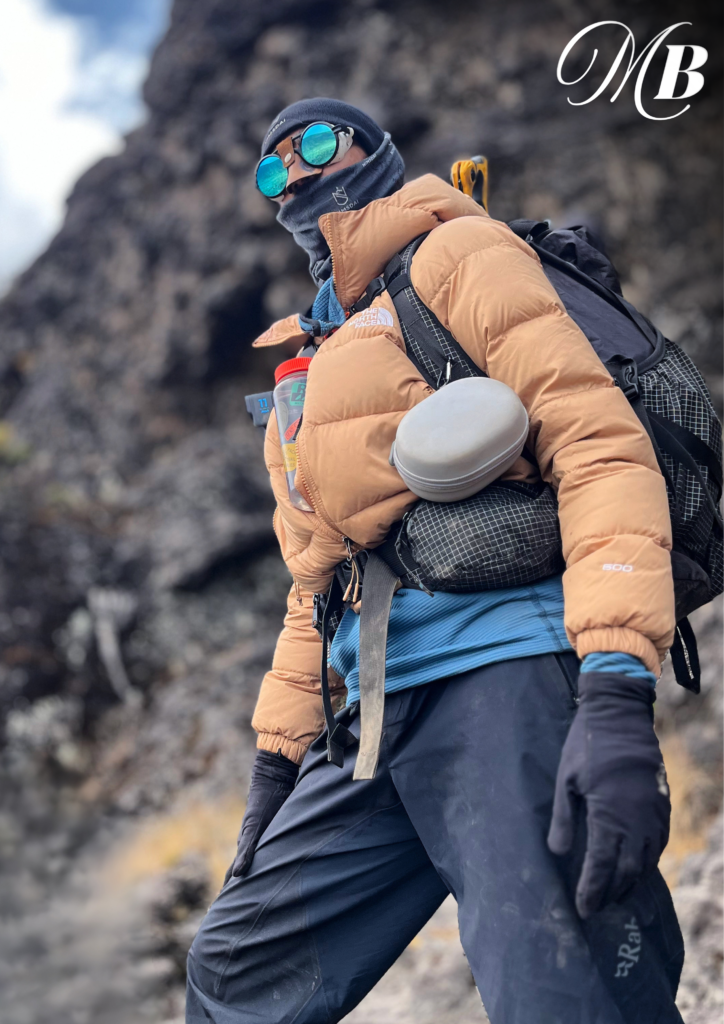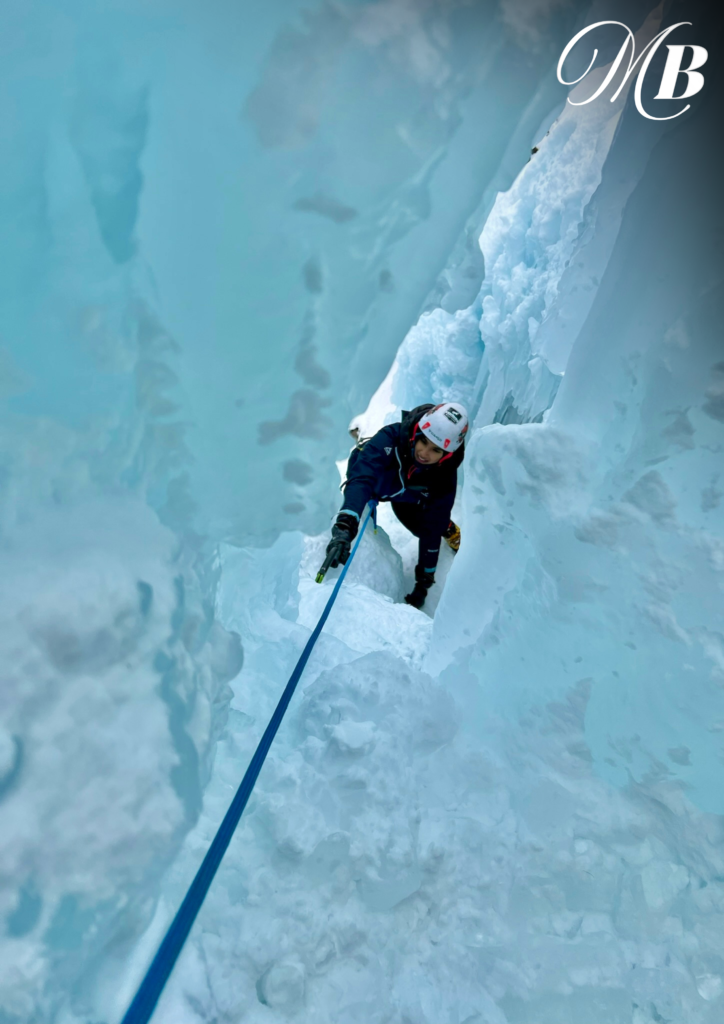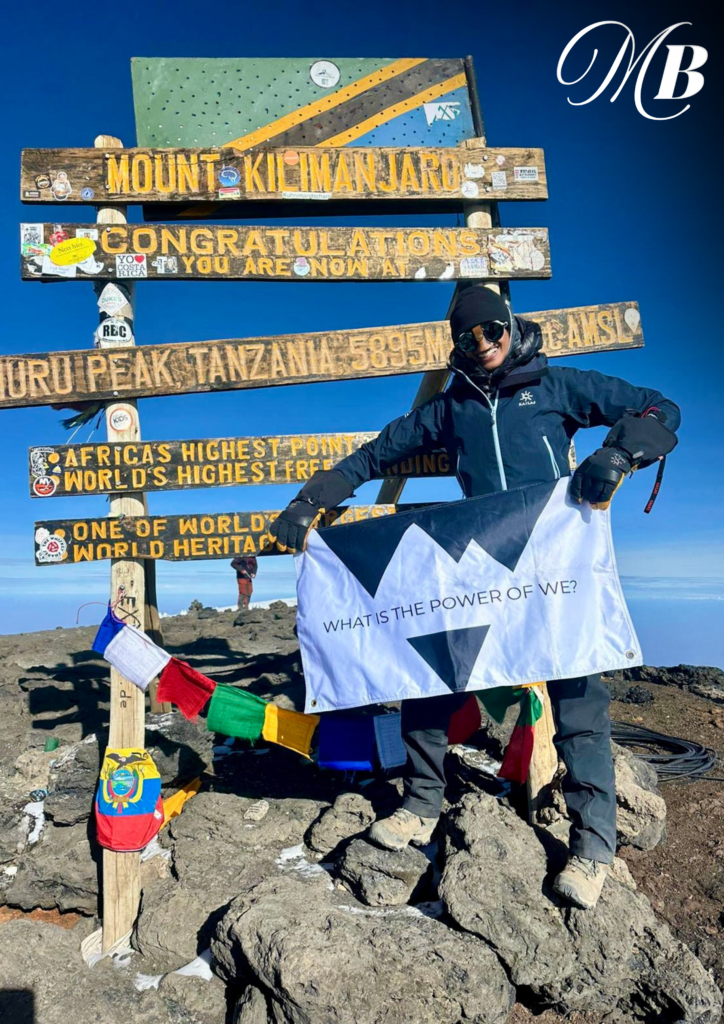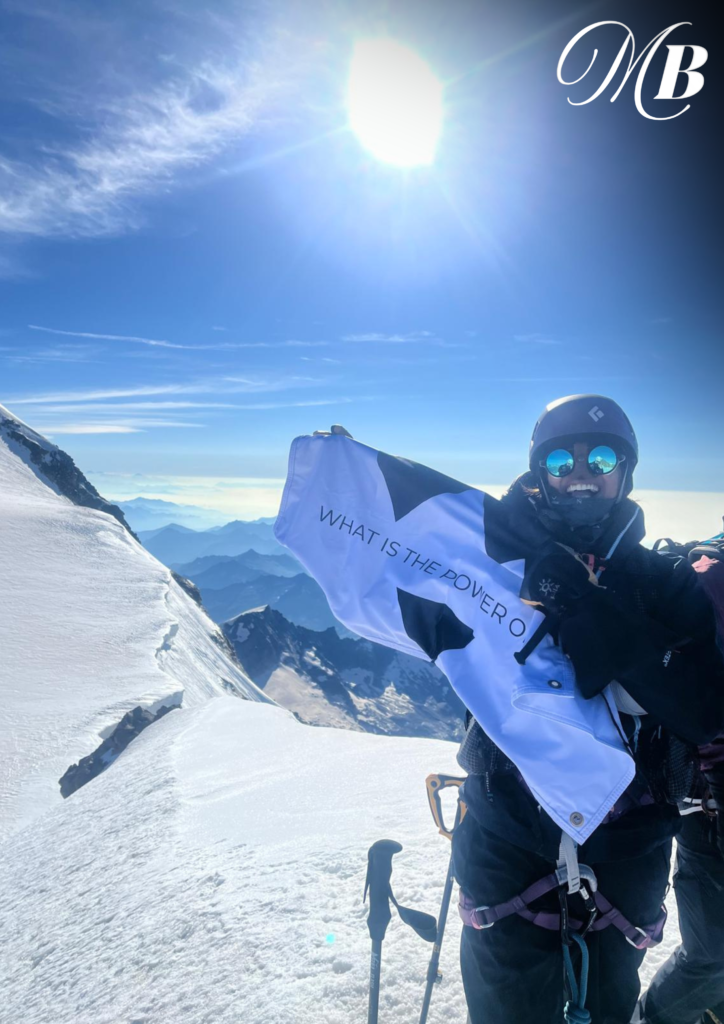
It seemed like any other day on the mountain. Anjali Mehta was somewhere between base camp and the summit of Mount Aconcagua, South America’s highest peak, when she witnessed something that would fundamentally change her approach to advocacy. It wasn’t just another case study or legal brief—it was raw, immediate violence against a woman that reminded her why she’d started this work in the first place.
“I couldn’t just file it away like another report,” Mehta says, her voice steady but tinged with the weight of memory. “This was happening right in front of me, in a place where I thought I was escaping all of that.”
The Making of an Advocate

Ten years earlier, Mehta was a different person entirely. During a study abroad stint, she found herself in Chile in 2014, working alongside the Ministry of Justice to compile the country’s report to the United Nations Committee Against Torture and work on domestic legislation efforts for survivors. The work was meticulous, bureaucratic, and critically important—helping to redefine torture to include sexual violence under Chilean law.
But it was the people behind the legal frameworks that stayed with her. The survivors whose stories became long quotes and footnotes in policy documents. The voices that were often lost in the translation between lived experience and legal language.
“I remember thinking, ‘These are real people, not case numbers,'” Mehta recalls. “Their resilience was staggering, but the systems of justice were failing them.”
That realization planted a seed that would grow over the next decade, eventually blossoming into something entirely unexpected: a movement that literally takes survivor stories to the highest points on Earth.
When Mountains Become Megaphones

The idea for Survivors to Summits was born from trauma, but it grew into something powerful. After witnessing gender-based violence during her 2024 climb of Mount Aconcagua, Mehta couldn’t shake the feeling that she needed to do more than just document injustice—she needed to amplify it.
“Mountains have this way of making you feel small and infinite at the same time,” she explains. “I thought, what if we could harness that feeling? What if we could take stories that have been buried and literally elevate them?”
The campaign now spans multiple continents, with Mehta carrying anonymous survivor messages to summits around the world. Each climb will become a public platform for private pain, transforming personal trauma into collective action.
It’s unconventional advocacy, but then again, Mehta has never been one for convention.
The Personal Becomes Political

Mehta’s shift from legal advocate to movement builder wasn’t just strategic; —it was deeply personal. While working as a storyteller in India, she herself became a survivor of violence. The experience forced her to confront the gap between policy and practice, between legal protections and lived reality.
“When you’re on the other side of the system you’ve been trying to fix, you see things differently,” she says quietly. “I realized that all the legislation in the world doesn’t matter if survivors still feel alone, still feel unheard.”
Statistics support her observation. One in three women globally experience violence, with rates even higher in South Asian communities. But for Mehta, these aren’t just numbers.— Tthey’re neighbors, friends, and fellow travelers on a journey she now understands intimately.
Building Bridges, Not Barriers

Today, Mehta operates in the spaces between worlds. She’s equally comfortable navigating the corridors of international law and the slopes of a glacier, moving fluidly between legal expertise and lived experience. Her approach is refreshingly human-centered: “Listen rather than prescribe,” she says. It’s a philosophy that guides everything from her one-on-one conversations with survivors to her plans for a global digital platform.
This platform, currently in development, will serve as a multilingual hub where survivors, advocates, and organizations can access funding, healing tools, and—perhaps most importantly—each other. It’s designed to combat the isolation and burnout that plague advocacy work.
“We’re not trying to reinvent the wheel,” Mehta explains. “We’re trying to make sure the wheel actually reaches everyone who needs it.”
The Test of Time
Mehta has developed a simple but rigorous framework for her work. Every project must answer three questions: Will it center survivor voices? Will it shift power, not just attention? Will it outlive her?
“If I can’t answer yes to all three, then I’m probably just creating noise,” she says with a laugh. “And there’s enough noise in this space already.”
This clarity is evident in her milestones. Survivors to Summits is growing from a single climb to group expeditions, a documentary project, and a platform for storytelling that transcends borders and languages.
Measuring Success in Stories

For Mehta, success isn’t measured in media coverage or policy changes, though both have their place. Instead, she points to moments of connection—a survivor in Peru who finds the courage to share her story, a law student who realizes advocacy can look different than she imagined.
“Success is when healing becomes communal, not isolated,” Mehta says. “When pain becomes a shared language that leads to shared action.”
The Next Summit

Mehta’s next literal summit is Mount Vinson in Antarctica, where she’ll carry anonymous survivor messages from around the globe to one of the most remote places on Earth. The symbolism isn’t lost on her—taking stories from the margins to the edge of the world.
She’s also working on a book about radical transformation through collective vulnerability, offering not just her story but a blueprint for others to create their own movements.
“I’m not trying to be the face of this movement,” she clarifies. “I’m trying to build platforms where other people can be the faces of their own movements.”
The Power of Connection
In a world that often asks survivors to stay quiet, Mehta is carving out space for them to be heard—on mountaintops, in digital spaces, and across the global stage. Her work isn’t just about advocacy; it’s about connection. About recognizing that trauma is universal, but so is the capacity for healing and transformation.
“We’re not alone in this,” she says, and it’s both a statement of fact and a promise. “None of us are.”
Anjali Mehta’s work can be followed at www.anjalimehta.info or www.whatisthepowerofwe.com, on Instagram @theanjlife, and on LinkedIn as Anjali Mehta.

